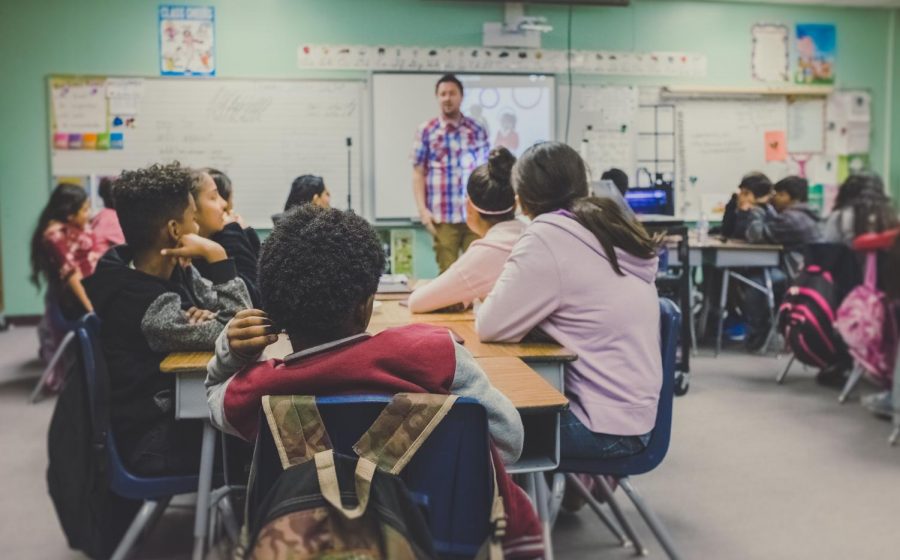Show Me the Money
Parent-led project takes on inequity in SPS.
Black bow ties and flowing gowns crowd together in a fancy hotel conference room downtown. Men and women hold martini glasses in one hand and a paddle in the other. From the front of the room a man reads off the next item up for auction and the paddles shoot into the air, bids climbing higher and higher past the thousand dollar mark. Eventually a happy couple walks away with their prize: a crayon on canvas collage from Ms. Ruppert’s kindergarten class.
Such is the typical scene at Coe Elementary’s annual Parent Teacher Association (PTA) run auction. One of three elementary schools in Seattle’s affluent Queen Anne neighborhood, the event rakes in tens of thousands of dollars for the school’s PTA, funds the school uses to purchase new books, desks, and any other equipment needed to keep the school in pristine condition.
Maybe even more importantly, the funds are used to pay the salaries of a number of specialists on the staff. This means that Coe can afford to maintain reading specialists, a visual arts teacher, a performing arts teacher, Advanced Learning Opportunity (ALO) teachers, and a school counselor, all as year round positions. Having these people in the building can greatly enrich any student’s education.
For Coe Elementary and its students, this is fantastic. However, for schools in Seattle’s southeast region who do not see these kinds of benefits, this type of event serves only to further accentuate the chasm that exists in fundraising between Seattle Public School’s north and south.
Intending to address these fundraising disparities, the PTSA Equity Project has emerged in Seattle. Growing from the Advocacy and Policy Cohort, a subsection of the Southeast Seattle Education Coalition, the PTSA Equity Project is a parent-led grassroots campaign that wants to get the discussion going about equity in Seattle Public Schools.
Hayden Bass, one of the project’s leaders and a member of the Kimball Elementary PTA, says this fundraising discrepancy is the root of a number of Seattle Public School’s equity issues.
“Kids of color are having overall much worse outcomes than our white students are,” Bass said. “It’s a problem everywhere until we come to a place where all kids are performing and having opportunities to succeed at the same level.”
The project is already making strides towards tackling inequity in our district.
“We’ve been able to connect folks at a couple of PTAs who do have a lot of fundraising capabilities with schools that currently don’t have PTAs who simply need money to start PTAs,” Bass said. “I think that there’s a lot of potential for more grassroots efforts like that, and in the next year or two we might be able to get something structural and city-wide going.”
As the project moves towards making these large changes, they are holding an organizers meeting on January 27th followed by a series of community meetings throughout the city in February and March. With these meetings, the project aims to bring together people from backgrounds to determine which direction to steer the project.
“We have an advisory board for the PTSA Equity Project that is [made up of] white, middle-class parents,” Bass said. “We want to make sure that that work is creating equity in Seattle rather than creating inequality, so we want to take direction from leaders of color and from folks that are most affected as we do this work.”
Portland Public Schools has implemented a fund sharing system in which one-third of all funds a school raises after the first $10,000 is set aside in a fund at the district. From there, the funds are parceled out to the district’s underfunded schools. A system like this is something the PTSA Equity Project has considered but no formal plan is in place yet.
“I think there are a lot of things about the way Portland does it that are great,” Bass said. “It might be that that exact model, needs to shift a little bit here. The heart of what we’re trying to do with the series of community meetings is to gather feedback from lots of different stakeholders and get ideas about what might work and how we might set up some kind of resource sharing system here in Seattle.”
Moving forward, Bass sees a lot to look forward to in the project’s future.
“I’ve been just thrilled to see that there are a lot of folks out there who want the same thing,” Bass said. “ I’m optimistic that we can have some recommendations [for the school board] pulled together certainly by later this year and there are a lot of factors that play into how quickly some things might change, but I am really heartened to see how much will there is out there among PTAs.”





